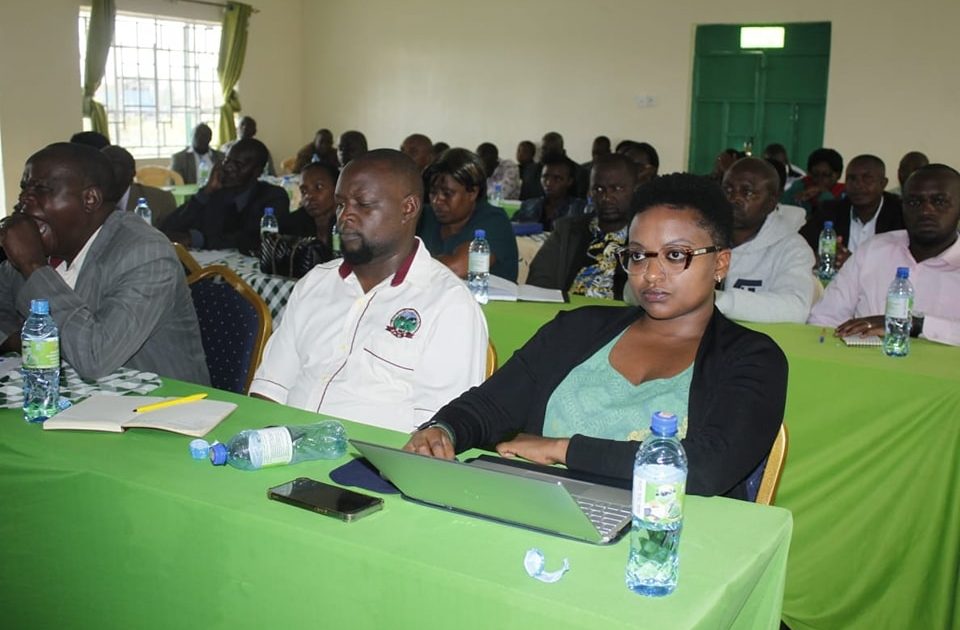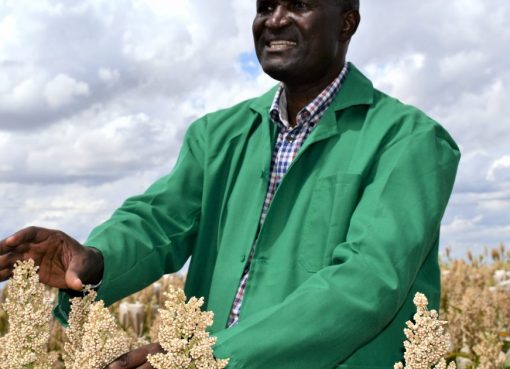The County Government of Nakuru has embarked on an ambitious plan to reinvigorate the cooperative societies sector, to help farmers market their produce in order to avoid exploitation by brokers.
The devolved unit’s administration has highlighted its willingness to assist the farmers to form and register societies as one way of putting more profits in their pockets.
While noting that farmers should be protected from any form of exploitation, County Executive Committee Member (CECM) in charge of Agriculture Mr Leonard Bor further indicated that cooperative societies are the best way to attract funding from government and financial institutions.
“Governor Susan Kihika’s administration and the national government are keen to help farmers organized in cooperatives. A significant number of farmers have not realized maximum market potential because they are not members of cooperatives,” stated Mr Bor.
He stressed that farmers should come together and establish societies where they will deliver their harvests for sale.
“Unless the farmers get more organized, they will be exploited forever. By becoming ‘middlemen’ themselves, cooperatives shield the farmer from the lop-sided relationship with the middlemen. Through aggregation, they enhance their bargaining power and prices owing to economies of scale. It also reduces the cost associated with individual trading,” he cautioned.
He was speaking at his office when the County Agricultural Technical Committee received a presentation on the inclusive model for agricultural transformation to boost food production and promote food security from the Presidential Economic Transformation Secretariat.
The model according to the CECM is in line with Kenya Kwanza Coalition’s manifesto to boost food production, promote food security and re-engineer the entire food production, storage and distribution chain to ensure that all Kenyans have access to affordable food all year round, come rain or drought.
“The model proposes to restructure the agricultural sector through the formation of Ward Cooperatives. In the model, farmers are encouraged to form and join ward cooperatives in which the government will invest in. This will create multiple value chains that increase agriculture production and boost economic value. They will also utilize food production resources and reorganize production to reduce the cost of marketing while maximizing profitability to the farmers,” Mr Bor explained.
The CECM challenged farmers to move from subsistence farming and penetrate the high-value export market, besides joining cooperatives to help access services and market their produce.
“We have initiated plans to ensure Nakuru exports her crops to East African countries like Uganda and also international markets including Europe. I urge farmers to seek ways of optimizing their production,” stated Mr Bor.
He stated that forming cooperatives at ward level will address the power balance which favours the middleman, adding that under the umbrella of cooperatives, small-scale farmers have a bigger voice to bargain.
“Middlemen cannot be eliminated but they can be managed. By making a cooperative a marketing vehicle, it can take advantage of information and communications technology to gain access to market information to expand the business beyond the local market,” added the CECM.
According to official records the county has currently more than 1,000 cooperatives.
County executives for Trade and Agriculture have been holding sensitization forums across the devolved unit to encourage farmers to join cooperatives.
Mr Bor disclosed, “We are in talks with the national government and development partners to help farmers avoid post-harvest losses through establishment of, for instance, cold rooms for produce like potatoes and carrots and value addition factories.
Those targeted by the Nakuru government include dairy farmers, whom the county wants to help tap into value addition for their milk so that they can compete effectively in the market.
Other products targeted are coffee, potatoes and avocados among other crops. The county government is also seeking to help farmers create market linkages to tap into the insatiable international market.
It is also working to revive pyrethrum farming and inject new life into the collapsed, yet lucrative sector.
Nakuru, regarded as a key food basket in the Rift Valley region, is an agriculturally rich county and a leading producer of potatoes, carrots, milk, vegetables and pyrethrum among other crops.
Molo, Kuresoi South and North, Subukia, Njoro and Bahati are among the county’s main agricultural producers.
The county has also enacted legislation that supports Saccos and cooperative movements.
The Cooperative Revolving Development Fund Act mandates the county government to set aside money for the Revolving Development fund in its financial estimates.
The fund provides money for low interest loans to cooperative societies with a view to scaling up their lending activities. It also aims at improving entrepreneurship and productivity.
“The fund will revive institutions in areas that can have an immediate impact on the household economy,” read a section of the Act.
The Act provides that the fund be managed by a board. Money borrowed by the entity must be approved by the assembly.
The fund managers are required to conduct civic education to promote awareness and understanding of the operations of the fund among stakeholders.
Mr Bor reiterated the importance of farmers linking with ward and sub-county agriculture officers and to work collectively to improve their product and service quality and reduce risks.
He also encouraged farmers to register at their respective sub-county offices so as to benefit from subsidized farm inputs.
“Registered farmers have access to cheaper fertilizer and seedlings provided by the national and county governments,” he said.
By Anne Mwale




